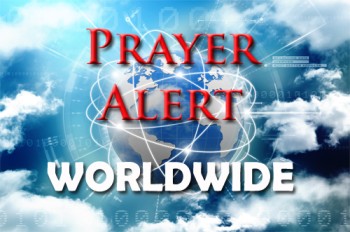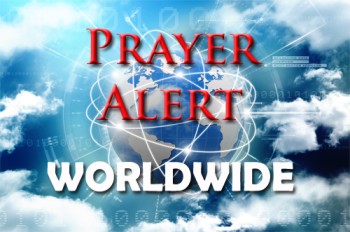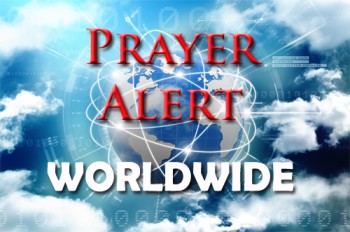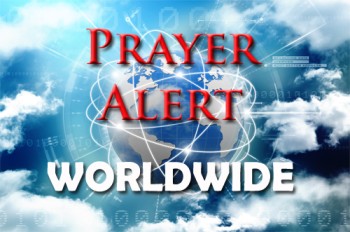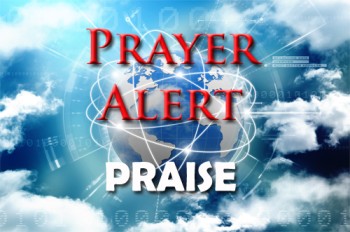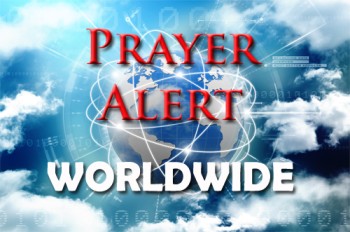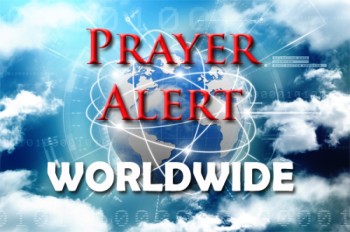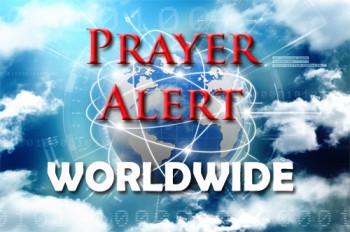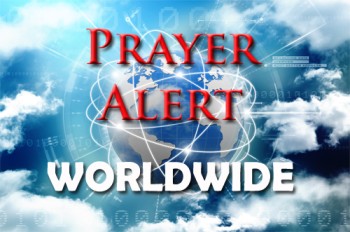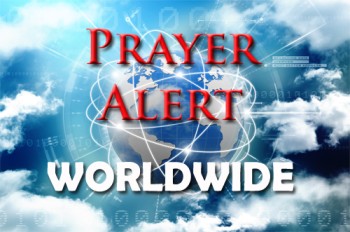Displaying items by tag: South Korea
South Korea: new president faces immediate challenges
Lee Jae-myung, South Korea’s new president, has entered office immediately following the impeachment of former president Yoon Suk Yeol, who failed in an attempt to impose martial law. Lee’s decisive victory, with nearly 50% of the vote, was a public rejection of authoritarianism. Though he campaigned to heal democracy and unify the country, his first task is confronting a crisis stemming from US trade and security policies under Donald Trump. South Korea faces 25% tariffs on all exports to the USA, threatening its already shrinking economy. The issue is compounded by Trump’s approach to intertwining trade with security commitments, casting doubt on the US military’s ongoing role in defending South Korea. Now, Washington’s strategic shift toward countering China could see US troops redeployed, leaving Seoul more vulnerable. Lee will seek to stabilize the economy and navigate complex diplomacy with both the USA and China, while asserting his country’s independence in a changing geopolitical landscape.
South Korea: court overturns prime minister’s impeachment
The constitutional court has overturned the impeachment of South Korean prime minister Han Duck-soo, reinstating him as acting president amid ongoing political upheaval. Han was removed from office after president Yoon Suk Yeol declared martial law late last year, suspending civilian legal processes and triggering a national crisis. After Yoon's suspension by lawmakers on 14 December, Han took over presidential duties - only to be impeached himself less than two weeks later for allegedly undermining the constitution. The opposition Democratic Party accused him of aiding Yoon’s martial law plan and refusing to appoint constitutional court justices or pass a bill investigating First Lady Kim Keon-hee. However, the court found no evidence to support these accusations; only one of eight judges supported the impeachment. Han welcomed the ruling, calling it ‘wise’. The nation now awaits the court’s decision on whether Yoon will be impeached.
South Korea: president arrested
South Korean president Yoon Suk Yeol has been arrested, ending weeks of standoff at his fortified residence. Yoon recorded a video before being taken to a detention centre, criticising the ‘collapse of the rule of law’. While he complied with the arrest warrant to prevent violent clashes, he has refused to cooperate with investigators. The arrest involved 3,200 officers, some scaling barriers to access the property. A standoff earlier this month delayed his detention as his presidential security service resisted, leading to the arrest of its acting chief. Yoon’s martial law declaration on 3 December, which deployed troops to the National Assembly, lasted hours before lawmakers voted to end it. His impeachment on 14 December suspended his powers, with the opposition accusing him of rebellion. He had defended his actions as a warning to the opposition, whom he called ‘anti-state forces’. Pro- and anti-Yoon protests have drawn thousands in Seoul since his impeachment.
South Korea: president faces impeachment after failed declaration of martial law
South Korean president Yoon Suk Yeol faces political turmoil after his controversial declaration of martial law on 3 December triggered calls for impeachment and police investigations into alleged insurrection. Opposition lawmakers accuse him of abusing power to suppress dissent under the guise of countering North Korea. The impeachment motion, set for a Saturday vote, requires a two-thirds majority in parliament, with opposition parties needing eight votes from Yoon’s ruling People Power Party (PPP) to pass. The martial law declaration, made during a late-night televised address, sparked immediate backlash. Armed troops attempted to block parliament but were repelled. Critics called the declaration unconstitutional. Yoon’s actions have divided his party and drawn widespread criticism. If he were to be impeached, the constitutional court would determine the outcome; prime minister Han Duck-soo could act as interim leader.
Startling contrasts between North and South Korea
The church in North Korea is growing at a remarkable 6% a year, far higher than the South Korean church's 0.7% growth rate, despite severe persecution under the Kim regime. With 400,000 Christians, North Korean believers face imprisonment or death for their faith, yet they persevere, using secret prayer codes and worshipping in hidden mountain sanctuaries. Miraculous healings often lead to conversions, highlighting God's power amidst oppression. In contrast, South Korea, renowned for its vibrant Christianity, faces a decline in faith among the younger generation. Nonetheless, South Korean churches remain a global force, with extensive missionary outreach, including efforts in countries like Afghanistan and North Korea. Initiatives such as Operation Dandelion, which sends Bibles into North Korea via balloons, demonstrate their dedication. Persecution in the North has ignited revival, while prosperity in the South has dulled spiritual fervour: but faithful witness continues to bring people to Christ across both Koreas.
North Korea fires ballistic missiles just before US election
Just a few hours before the US presidential election began, North Korea launched several short-range ballistic missiles into the sea east of the Korean peninsula. The missiles were fired from a province south of Pyongyang. South Korea confirmed the launch but has not released further details. Kim Jong-un’s sister, Kim Yo-jong, condemned the recent US-South Korea-Japan trilateral air drills involving B-1B bombers, calling them ‘hostile’ and ‘invasive’. She argued that such actions justified the expansion of North Korea’s nuclear programme. This missile test follows a significant launch on 31 October, when North Korea tested what is believed to be a new intercontinental ballistic missile. South Korean officials had earlier warned that North Korea might engage in provocative actions around the US election, raising regional tensions and global concerns.
Seoul vows response as North Korean troops head to Ukraine
South Korean president Yoon Suk Yeol has vowed that his government ‘won’t sit idle’ following reports that North Korea has sent three thousand troops to support Russia in its war against Ukraine. In a meeting with the Polish president, Yoon said that this deployment violates UN resolutions and threatens global security. South Korea’s spy agency says North Korea aims to send up to ten thousand troops to Russia by the end of 2024, though both Moscow and Pyongyang deny the claims. In response, Yoon indicated that South Korea is preparing diplomatic, economic, and military countermeasures in collaboration with allies, including possibly providing Ukraine with weapons systems. While South Korea has so far only supplied Ukraine with non-lethal aid, the situation may prompt a shift in policy. Tensions in the Korean peninsula have intensified as North Korea has reportedly used Russia's invasion of Ukraine as an opportunity to enhance its nuclear and missile programmes. The two leaders also discussed expanding defence cooperation, including new arms deals for Polish military upgrades. See
North / South Korea: balloon warfare
North Korea has launched over 260 balloons filled with rubbish into South Korea, leading authorities to warn residents to stay indoors and avoid touching the balloons and attached plastic bags, which contain ‘filthy waste and trash’. North Korea had threatened to do this in retaliation against South Korean activists' leaflet campaigns. Residents near Seoul received alerts to avoid outdoor activities and report any ‘unidentified objects’ to authorities. Photos on social media show balloons carrying items like toilet paper, soil, batteries, and possibly even faeces. South Korea's military, condemning the action as a violation of international law and a threat to public safety, have demanded that North Korea cease these actions. Historically, both Koreas have used balloons for propaganda.
North Korea: new proposal for enforcing sanctions
The USA, South Korea, and Japan are proposing a new multinational panel outside the UN to enforce sanctions against North Korea. Russia rejected renewing the UN panel which has monitored sanctions for fifteen years, and China abstained. The new panel, with support from allies like Australia and New Zealand, would aim to continue the UN’s work. Though lacking UN endorsement, it could monitor North Korea more effectively, and could also oversee human rights resolutions on North Korea. US ambassador Thomas-Greenfield is discussing options with South Korea and Japan. Noting that Moscow and Beijing have called for easing sanctions to restart diplomacy and ease humanitarian suffering in the impoverished nation, he urged them to reverse course, and stop rewarding North Korea's bad behaviour.
South Korea: crushing electoral defeat for ruling party
The liberal opposition, led by the Democratic Party (DPK), has secured a significant election victory, winning 192 out of 300 seats in South Korea’s national assembly. The result is seen as a midterm assessment of President Yoon Suk Yeol's leadership, as his People Power Party (PPP) suffered a crushing defeat. His party leader has resigned, and the prime minister has offered to do so. The DPK will now be able to fast-track and push legislation through parliament. Its leader Lee Jae-myung may now be emboldened to consider another presidential run. Mr Yoon is under pressure to address a number of issues including rising food prices, a rapidly ageing population and an ongoing doctor's strike. His wife's involvement in a gift controversy and corruption allegations against senior PPP members add to his challenges. The DPK, while celebrating its victory, also faces its own controversies and internal struggles, including corruption allegations.
